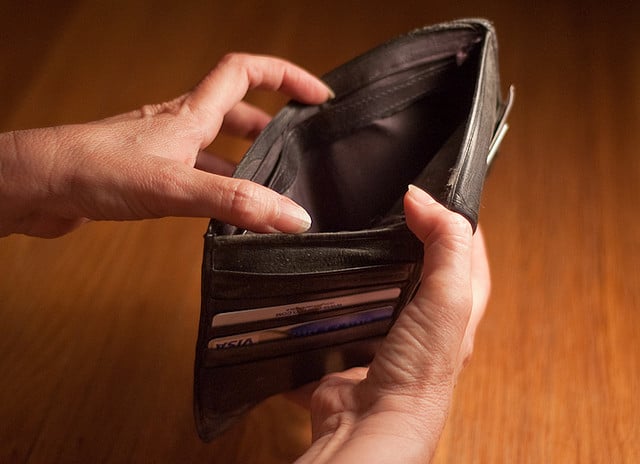
Source: Flickr user nohodamon.
It’s never a good feeling to look at your bank account and know that you don’t have enough to cover your bills.
Unfortunately, too many people with student loans find themselves in this position after graduating. When the student loan payments come due, it can be a scary proposition.
Some students haven’t been able to find jobs in their career, others simply don’t make enough to afford their student loan payments. Whatever the circumstance, there are options for you if you’re in this position.
First of all, it’s important to know that you’re not the only one in this predicament. Many, many students have trouble paying off their student loans. That’s why there are options to help make your payments more manageable.
Here are some ways that you can reduce your bill if you can’t afford your student loan payments:
1. Consolidation of your student loans
Step 1 should be fairly straightforward. If you have not investigated loan consolidation–especially for your federal direct student loans–now is the time.
In most cases, this is a simple process that doesn’t require any kind of credit check or other hassles. Using the U.S. Department of Education’s website, students can consolidate all of their existing federal loans into a single loan. This results in having one payment with an interest rate that is the weighted average of their other loans.
By just taking this single step you may be able to knock hundreds of dollars per month off of your student loan bill.
2. Refinance (some) of your student loans
Are you paying high interest on some of your student loans? Look into refinancing as a way to cut down your interest and save you money in the short term–with lower monthly payments–as well as savings over the life of your student loans.
Consider refinancing private student loans, but you may want to avoid refinancing your federal loans. These often qualify for special low-interest rates and also offer additional protections such as income-based repayment options and possible forbearance (see below).
If you were to refinance your federal loans through a private lender, you may lose these benefits, so consider this option carefully.

3. Income-based repayment
If you’ve accepted a job in your career but you’re not earning enough to make your student loan payments, then income-based repayment could be the right option for you.
There are a number of available programs for federal direct student loans to be repaid based on a percentage of your income, which can provide some temporary relief by lowering your payment in the immediate future.
The flip side of these programs is that you may be paying a higher payment in the future, and you’ll also likely be stuck paying your loans for a longer period of time.
4. Forbearance on your student loans
Last but not least, if you are having temporary trouble paying your student loan payment and think your situation might improve in the future–perhaps you’re hoping to land a new job or get a raise soon–then you may want to consider applying for forbearance.
This will allow you to temporarily stop making payments on your student loans and might give you just enough time to get on your feet.
Note that only certain loans will qualify for the possibility of forbearance and you’ll need to provide proof of your situation and the need for the freeze. Also, keep in mind that your loans will continue to accrue interest while in forbearance. This means you’ll end up paying for that time in the long run. But it may offer just the solution you’re in need of some temporary relief.


